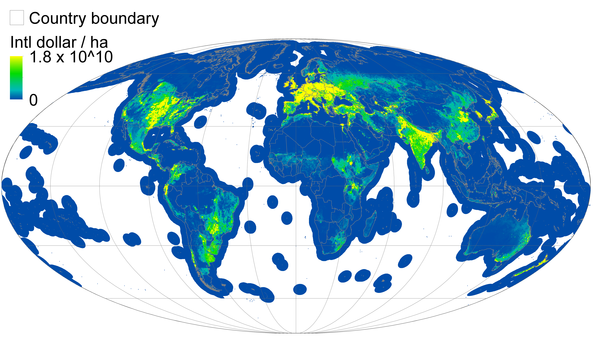Geographic information science (GIS) research focuses on the analysis of spatial relationships, defining uncertainty, and using GIS for decision-making.

Mapping global ecosystem services
This ongoing research builds on the work pioneered by Costanza (Nature, 1997) and aims to further update and present terrestrial and marine ecosystem services on a global scale. Further work will assess the uncertainty of the input data sets in order to better assist decision-making from the analysis.
Fuzzy logic multi-criteria evaluation
A fuzzy logic multi-criteria evaluation and error propagation analysis methodology has been proposed for petroleum exploration. Further work will assess the applicability to a variety of geographic regions as well as improving the uncertainty of input data sets.
Conjugated Basins, Tectonics, and Hydrocarbons (CBTH)
A regional basin study focusing on the Gulf of Mexico, Caribbean, northern South America, and western Africa that provides a GIS database of original and digitized geologic and petroleum data. The database consists of seismic, well, cross section, stratigraphic column, and outcrop data as well as a geologic database combined for consistent attribute classification and sourceability. Key personnel: Paul Mann (UH) and Alejandro Escalona (UiS).
Lower Cretaceous Basin Studies in the Arctic (LoCrA)
A regional basin study that focuses on the Lower Cretaceous in the Norwegian and western Russian Arctic that provides a GIS database of original and digitized geologic and petroleum data. The database consists of seismic, well, cross section, stratigraphic column, outcrop, palynology, and provenance data as well as a geologic database combined for consistent attribute classification and sourceability. This project was concluded in 2018. Key personnel: Snorre Olaussen (UNIS) and Alejandro Escalona (UiS).